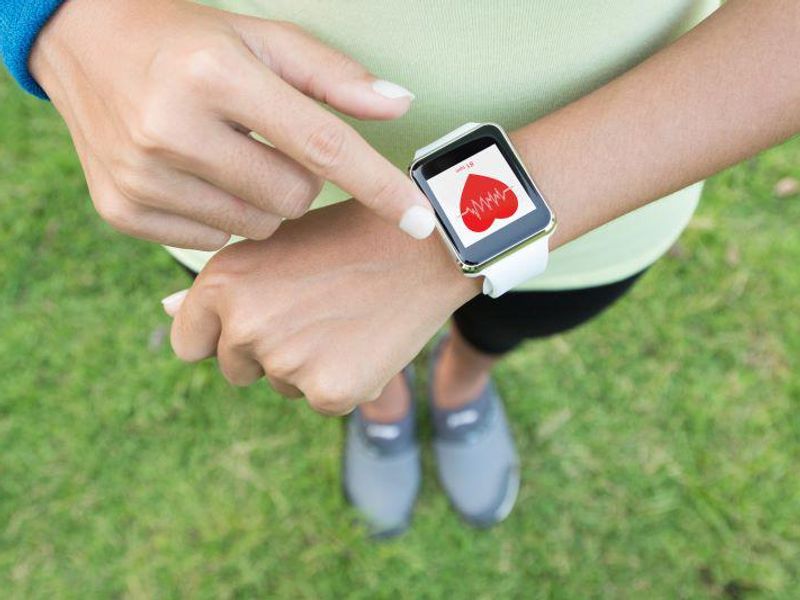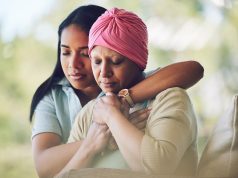AI algorithm interpreting data from a wearable sensor bracelet that monitors changes in physiologic parameters might allow early detection
THURSDAY, June 23, 2022 (HealthDay News) — Wearable sensor technology could facilitate detection of presymptomatic COVID-19, according to a study published online June 21 in BMJ Open.
Martin Risch, M.D., from the Dr. Risch Medical Laboratory in Vaduz, Liechtenstein, and colleagues conducted an interim analysis of a prospective cohort study to examine machine learning-based identification of presymptomatic COVID-19. A total of 1,163 participants wore the Ava-bracelet that measured respiratory rate (RR), heart rate (HR), HR variability (HRV), wrist-skin temperature (WST), and skin perfusion nightly; 1.5 million hours of physiological data were recorded.
The researchers found that COVID-19 was confirmed in 127 participants, 66 of whom had worn their device from baseline to symptom onset and were included in the analysis. Significant changes in RR, HR, HRV, HRV ratio, and WST device-measured physiological parameters were observed during the incubation, presymptomatic, symptomatic, and recovery periods of COVID-19 relative to baseline. Measurements were extracted from day 10 to day 2 before symptom onset from 66 participants; these measurements were incorporated into a training set (70 percent of participants) and tested in a test cohort (30 percent of participants). When detecting COVID-19 up to two days prior to symptom onset, the developed long short-term memory based recurrent neural network algorithm had a recall (sensitivity) of 0.73 and 0.68 in the training and testing sets, respectively.
“Our research shows how these devices, partnered with artificial intelligence, can push the boundaries of personalized medicine and detect illnesses prior to symptom onset, potentially reducing virus transmission in communities,” the authors write.
Several authors disclosed financial ties to pharmaceutical and medical technology companies, including Ava AG.
Copyright © 2022 HealthDay. All rights reserved.








